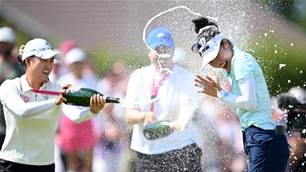There was arguably no bigger moment for the future of women's football in this country than the negotiation and signing of a Collective Bargaining Agreement for the W-League.
There was arguably no bigger moment for the future of women's football in this country than the negotiation and signing of a Collective Bargaining Agreement for the W-League.
https://twitter.com/TheWomensGame/status/907049535033057280
With the rise of women's sport in the past two years and this year's explosion onto the sporting landscape of AFLW, football faced a steadily growing challenge for future players.
It may have been forgotten in a lot of the hype but back in 2008 Football Federation Australia were among the early visionaries in relation to supporting a national competition for women.
However, as they say, if you are standing still you are going backwards and that was the general perception in relation to the W-League.
Super Netball, cricket's Big Bash and the Southern Stars and AFLW shook up the existing marketplace and suddenly young girls had their choice of sport and football needed to find a way to compete.
[MORE: Polkinghorne's century | Memories of 2017]
The issue of pay and conditions was one that had been festering and quietly bubbling way for a number of years and towards the end of 2016 the FFA and Professional Footballers Australia came to the table.
That is was done in a collaborative manner is to the credit of both parties - particularly after the acrimony relating to the Matildas CBA.
https://twitter.com/thepfa/status/907063292744609792
The final CBA saw significant improvements in pay and established a better minimum salary for players as well as a host of standard conditions.
The CBA will run for a term of 2 years covering the 2017/18 (Season 10) and 2018/19 W-League seasons.
https://twitter.com/TheWomensGame/status/907130976685273089
No-one believes that the current CBA is perfect but it was an important stepping stone for the women's game.
The previous situation would have eventually caused a big problem for the game. While the Matildas receive a lot of the attention, having a strong participation and high performance base is critical to the strength of the Matildas. That is a strong W-League aids in a strong national team.
Losing players from the W-League and resulting in a decreasing standard would have eventually had a bearing on the Matildas.
But fundamentally, the players who perform in the W-League, on their own merits, have worked hard to earn improved pay and conditions.
Related Articles

Column: Back-to-Back and Better Than Ever

The Aussies at the U.S Women’s Open













